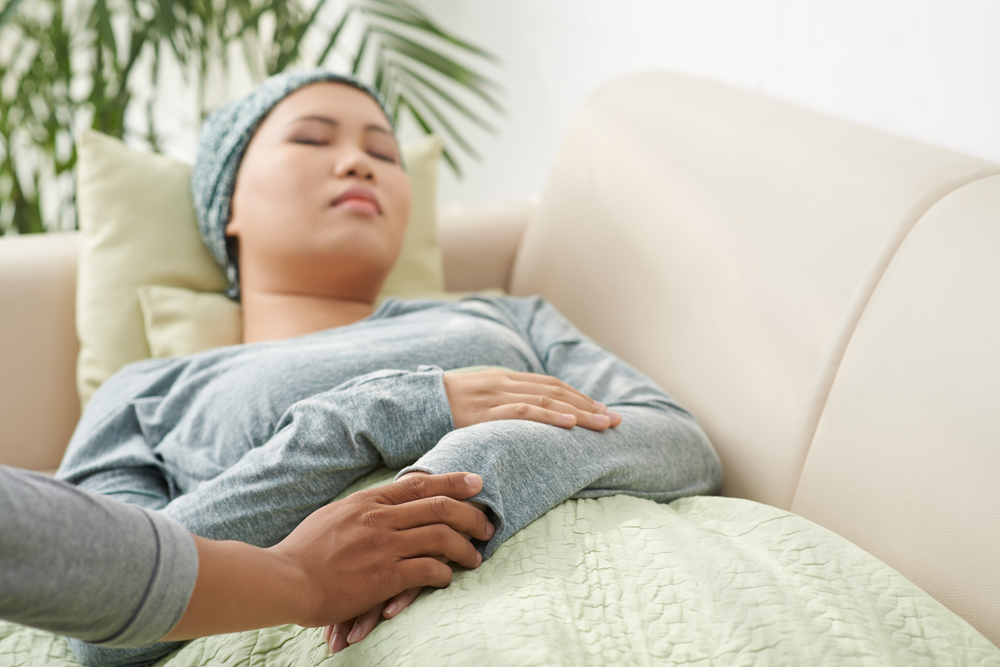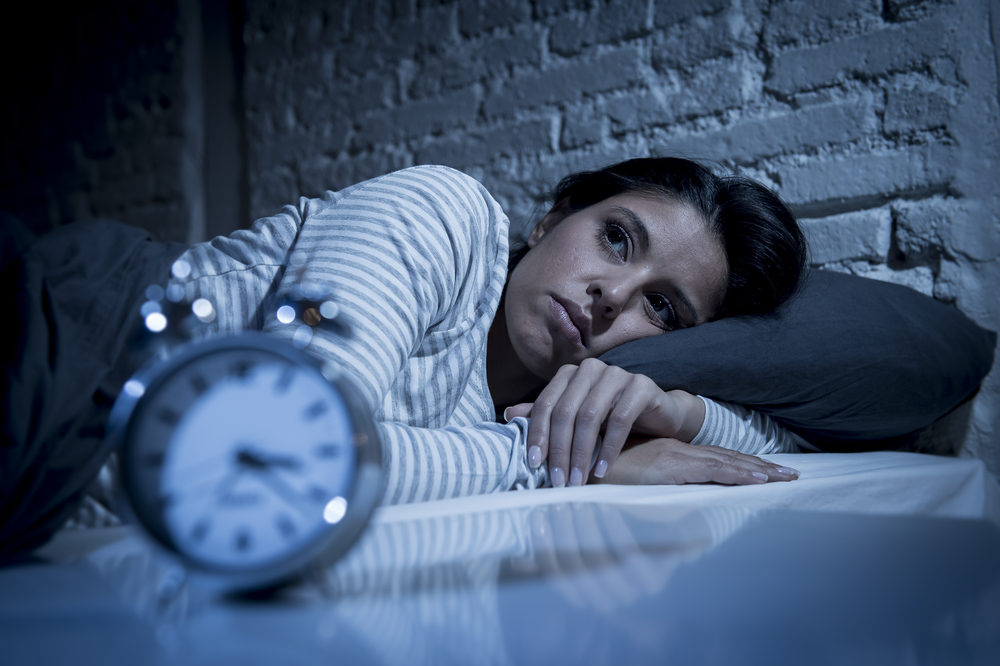Contents:
- Medical Video: How to Fall Asleep in 2 Minutes According to the US Navy
- Why do cancer patients find it hard to sleep well?
- What are the consequences if cancer patients have difficulty sleeping?
- Tips so that cancer patients can sleep well
- 1. Sleep and wake up always at the same time
- 2. Regular exercise
- 3. Massage and meditation
- 4. Avoid caffeine and alcohol
- 5. Make your bedroom as comfortable as possible
- 6. Pay attention to the medicines you are taking
Medical Video: How to Fall Asleep in 2 Minutes According to the US Navy
In addition to having an impact on body and mental health, cancer and its treatment can interfere with sleep. The National Cancer Institute reports that more than 50 percent of cancer patients have difficulty sleeping soundly. In fact, people with cancer need a lot of rest so that their bodies remain fit. This is confirmed by the statement of Dr. Altshuler of the Cancer Treatment Centers of America who says that lack of sleep can reduce the body's immune system to fight cancer cells that are developing.
So, is there a way to deal with sleep disorders in cancer patients? See the full explanation below.
Why do cancer patients find it hard to sleep well?
Sleep disturbances in cancer patients are generally caused by the side effects of chemotherapy and medications, to the effect of stress because of thinking about their health condition. Cancer patients may also experience severe stress because they feel bored, isolated, or trapped after too long in the hospital. Stress is even the main source of sleep problems in about 70 percent of cancer patients.
As many as 80 percent of cancer patients difficulty sleeping soundly due to insomnia. Reporting from the Cancer Treatment Centers of America, cancer patients are twice the risk of experiencing insomnia than healthy people. Insomnia is characterized by complaints that it is difficult to start sleeping, often wake up all night, or cannot go back to sleep. The severity varies, depending on the type and stage of the cancer, as well as the severity of the cancer pain and the side effects of treatment.
In addition, if 30 percent are cancer patients sleeplessness due to obstructive sleep apnea.
What are the consequences if cancer patients have difficulty sleeping?
When you lack sleep, the body considers it a danger. As a self-defense response, the brain will brake the production of the hormone melatonin to replace it with more stress hormones such as cortisol and adrenaline.
Melatonin can improve immune function. When the body does not produce enough melatonin, the immune system will have difficulty preventing cell damage and tissue caused by cancer.
A study published by the journal Elsevier published on the Science Daily page reported that sleep apnea can increase the risk of death in cancer patients. Because, sleep apnea causes shortness of breath (10-60 seconds; or repeats every 30 seconds) during sleep which can cut off oxygen supply to the lungs. When the body does not get enough oxygen, cancerous tumors will be more easily enlarged and spread.
Tips so that cancer patients can sleep well
Deep sleep is the key to maintaining a healthy body from the inside. To begin to overcome the problem of difficulty sleeping while you are undergoing cancer treatment, try following these guidelines:
1. Sleep and wake up always at the same time
Sleep and wake up always on time every day is one of the most important steps to overcome sleep problems due to cancer. As much as possible schedule sleep and wake up at the same time every day, even on weekends and holidays. For example, if you need to wake up at 6am then you should have to go to bed at around 11pm.
By adhering to a regular sleep schedule every day, your body becomes lighter, warmer, and the hormone cortisol released is also more controlled, giving you an energy supply for activity.
In addition, limit your nap time to 30 minutes and no more than 3 pm. This will prevent you from having trouble sleeping at night.
2. Regular exercise
You are advised to keep exercising even though you are on cancer treatment. Exercise can help improve fitness and immunity, help reduce various side effects of treatment, prevent drastic weight loss, and prevent stress and depression due to cancer. All the benefits of this sport can ultimately help you sleep better every night.
Sports choices that are safe for people with cancer are yoga, tai chi, relaxing, swimming, and relaxing biking. Try to exercise regularly at least 20 minutes 3 times a week. Don't forget to stretch and cool down before and after exercising.
If you want to keep exercising, you need to know the limits of your body's ability. If you have begun to feel tired, you should immediately stop exercising. Give the body time to rest. When you feel better, you can start slowly.
But remember, avoid exercising 3 to 4 hours before bedtime so that the body does not get tired and actually makes it difficult to sleep. You should also discuss it first with your doctor about the decision to exercise while being treated. Your doctor can suggest a safe exercise guide for you.
3. Massage and meditation
A study shows that massage can prevent cancer sufferers from having difficulty sleeping. Massage can help reduce pain, anxiety, and other symptoms experienced by people with cancer.
Apart from physical therapy, you may also need therapy that calms the mind, such as meditation, relaxation, and behavioral and cognitive therapy.
4. Avoid caffeine and alcohol
Caffeine stimulant effects can last until midnight when taken 3 hours before going to bed. So no wonder your sleep becomes disturbed. Many people may realize that only drinks such as soda, tea, and coffee contain caffeine, even though foods such as chocolate bars also contain caffeine.
Same with alcohol. Although initially it can make you sleepy, alcoholic beverages can make it difficult for you to sleep well or even wake up in the middle of the night.
5. Make your bedroom as comfortable as possible
To be able to sleep well, try to make your bedroom as comfortable as possible. Make sure your bedroom is a place that is dark, cool and calm. The ideal room temperature for deep sleep is 20-23 ° C. Use earplugs and eye masks if you can't sleep in a bright and noisy environment.
Try not to use your bedroom for anything other than sleep, so that your body becomes accustomed to connecting to the bedroom with rest periods. Avoid things that can disrupt your sleep, such as the habit of checking your cellphone or watching TV before going to bed.
The emission of bright light from electronic devices works to mimic the nature of the sun's natural light. As a result, the body's biological clock considers this light as a signal that it is still morning, and therefore the production of melatonin (sleepy trigger hormone) becomes disrupted.
If you still can't sleep after trying it for 15 to 20 minutes, try doing things that are monotonous, like reading a book, or drinking warm milk to provoke drowsiness. But remember, keep relaxed and calm. Stress and worry because not being able to sleep will only make it harder for your efforts to sleep.
6. Pay attention to the medicines you are taking
If you still experience sleep disorders, try checking again the content of the drug you are taking. Because, some cancer drugs cause side effects that make it difficult for you to sleep awake. For example steroids, such as prednisone. It's best to take the medicine long before your bedtime.
If possible, talk to the doctor to reduce the dose or change the type of medication to avoid the side effects of insomnia.
Also consult your doctor if you still have trouble sleeping after four weeks of trying these various methods to get the right treatment.














